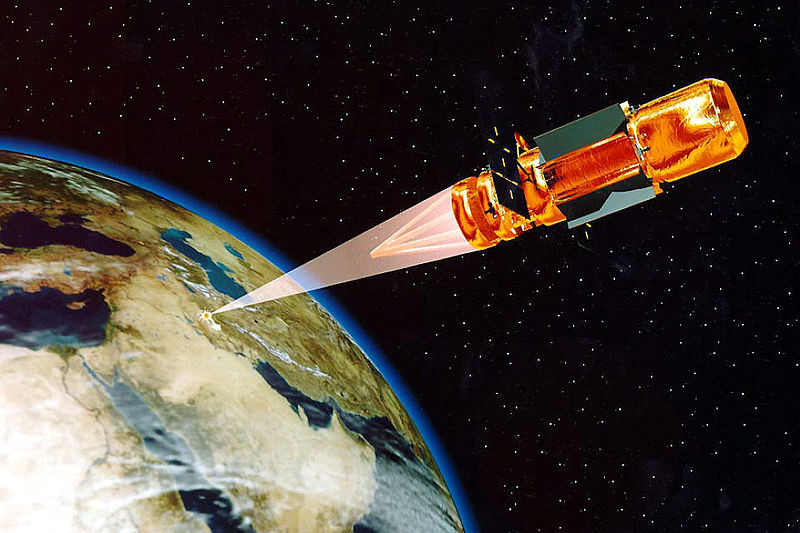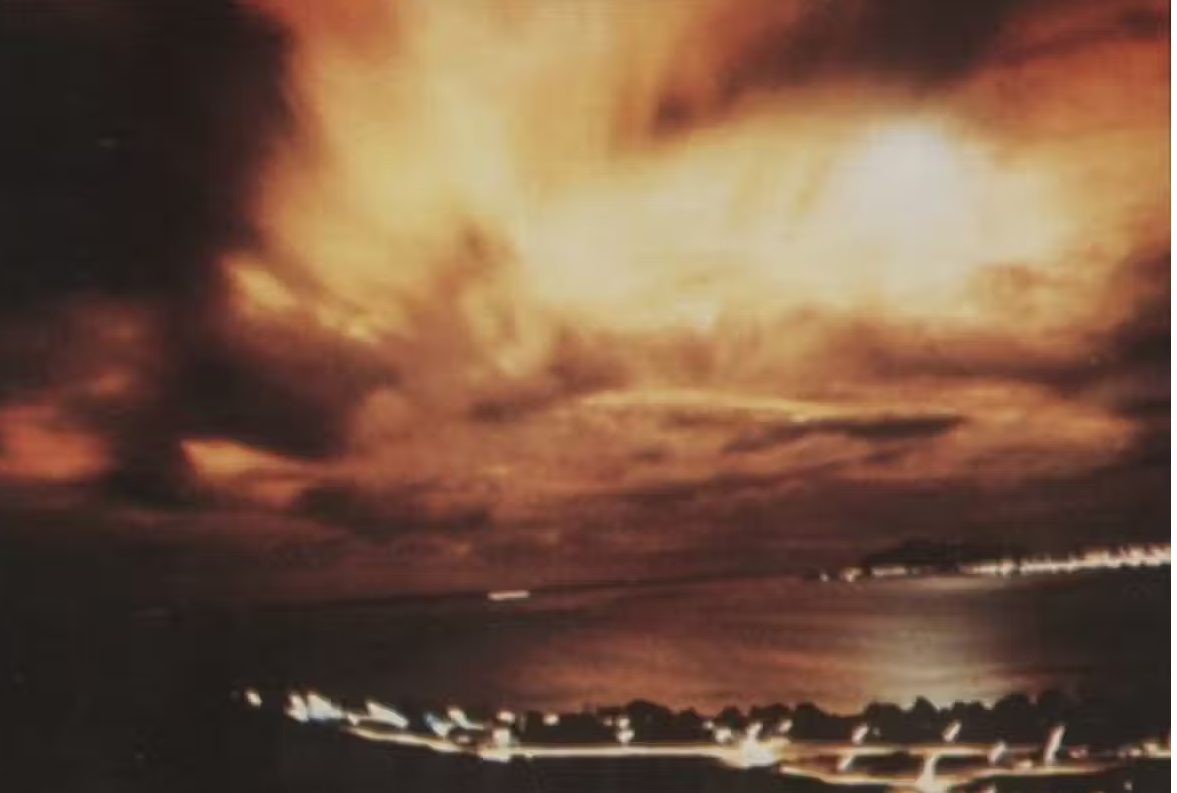Russia has pledged to take a position on a US-sponsored Security Council resolution proposing a ban on nuclear weapons in space. But why is Washington suddenly so interested in the idea? What might the resolution contain?

Sputnik asked one of America's leading independent military and foreign affairs observers to comment on these questions.
Russia will "study" the US draft resolution
Kremlin spokesman Dmitry Peskov said strategic security issues are one of the few areas of potential dialogue between Russia and the United States. “The main potential area of dialogue between the United States and Russia is issues related to strategic security, including space,” Peskov told reporters on April 5, commenting on plans by the United States and Japan to propose a ban on deploying nuclear weapons in space to the United Nations Security Council next week.
“As for the project, we need to wait, study the material, read it and then form an opinion,” spokesman Peskov said.
Earlier, White House National Security Council spokesman John Kirby on April 4 made clear Washington's expectations for Moscow regarding the unsubmitted draft resolution.
“We have heard President Putin say that Russia has no intention of deploying nuclear weapons in space,” Kirby said. “So we expect Russia to vote in favor of this resolution. There is no reason why they wouldn’t. And if they do, I think that raises some really legitimate questions for Putin about what his intentions are.”
“Our position is quite clear and transparent,” President Putin said during a meeting in the Kremlin with Defense Minister Sergei Shoigu in February, commenting on claims by US officials that Russia had acquired some “worrisome” new “anti-satellite weapons” that could soon become operational.
“We have always been and remain resolutely opposed to the deployment of nuclear weapons in space. On the contrary, we call on everyone to adhere to all existing agreements in this area,” Putin stressed. Russia “has repeatedly proposed to strengthen joint cooperation in the region, but for some reason, in the West, this topic is not raised,” the Russian leader said.
“We have not deployed any nuclear weapons in space or any of their components for use against satellites or to create areas where satellites cannot operate effectively,” Shoigu said at the same meeting. He accused Washington of creating a space threat from Russia to pressure the country’s parliament to approve more aid to Kiev and to try to draw Russia into nuclear arms control talks suspended over the crisis in Ukraine.
“The United States and the West are calling for Russia to be defeated strategically, while on the other hand they say they want to have a dialogue about strategic stability, pretending that these things are not related,” President Putin said, stressing that such an approach “will not work.”
What is the content of the draft Resolution?
The joint US-Japan resolution reportedly calls on countries to pledge not to “develop nuclear weapons or any other weapons of mass destruction designed to be placed in orbit,” reaffirming the expectation that countries “comply fully” with the Outer Space Treaty, which entered into force in October 1967.
Further details of the draft resolution have not been released, but Russia’s deputy UN ambassador Dmitry Polyansky commented on the proposal last month, calling it “out of touch with reality” and accusing the US of “yet another propaganda stunt” through a “highly politicized” draft resolution.

Questionable timing?
“It would be interesting to know the details of this proposed US treaty,” Earl Rasmussen, a veteran independent military and foreign affairs commentator and retired US Army Lieutenant Colonel with 20 years of service, told Sputnik.
“I’m usually pretty cautious when they propose something, because the United States has probably unilaterally extended or withdrawn from more treaties than any other country,” Mr. Rasmussen said.
Noting that the 1967 Outer Space Treaty is due for an update after nearly 60 years, Rasmussen said he found the timing of the US proposal both “interesting” and “curious,” because a treaty regarding the deployment of nuclear weapons in space already exists.
“I’m just curious what the intent behind this is,” Rasmussen pondered, wondering whether the resolution might be aimed at controlling not only the deployment of nuclear weapons in space but also their development.
“I mean if we look at the 1972 [Anti-Ballistic Missile] Treaty that the US withdrew from — they developed missile defense systems before they did and then they withdrew from the treaty and deployed them,” Rasmussen said, noting that there is currently nothing prohibiting countries from developing powerful space-based weapons.
“I also think the US might be concerned about EMP,” the observer said, referring to electromagnetic pulse (EMP) weapons that can destroy satellite electronics. “Nuclear weapons can obviously do that, but you don’t need nuclear weapons. The US has even admitted that they are not sure whether Russia is developing nuclear weapons for space, but I think they are concerned about it.”
The US military apparatus is “very dependent on satellites” for its operations, Mr. Rasmussen said. “So I think they might be concerned about not really having a good defense against some of the weapons that would kill or disrupt satellites. So that might be the reason behind it.”
The observer stressed that, in any case, it “must be beneficial” for Washington to introduce the resolution now, otherwise they would not have proposed it.
If the resolution is worded honestly and promotes proposals that benefit everyone, Mr. Rasmussen said, there should be no problem for Russia and other countries to consider it. “But if they cut off the research and try to skew the proposals to benefit the West, then you can see China and Russia rejecting it,” he predicted.
The US has repeatedly accused Russia of developing space-based super weapons capable of tilting the global strategic balance, most recently through the creation of nuclear-powered anti-satellite technology.
At the same time as accusing Russia of militarizing space, the Pentagon has been steadily ramping up its space warfare capabilities, formally establishing the Space Force as a separate branch of the US military in 2019, taking steps to strengthen its space military, launching new satellite constellations, and openly discussing plans to turn space into a new “warfighting domain.” Last December, Marine Corps Lieutenant General Matthew Glavy stressed that the US must “win the space domain” to win wars.
In 2008, Russia and China proposed the Treaty on the Prevention of an Arms Race in Outer Space (PAROS) - a draft comprehensive arms control agreement that would ban the deployment of weapons, anti-satellite systems and other advanced technology for military use in space.
Moscow and Beijing have repeatedly brought up the treaty in talks with Washington and its allies. But successive US administrations have dismissed PAROS as a “diplomatic ploy” by Russia and China to somehow give them “military muscle.”